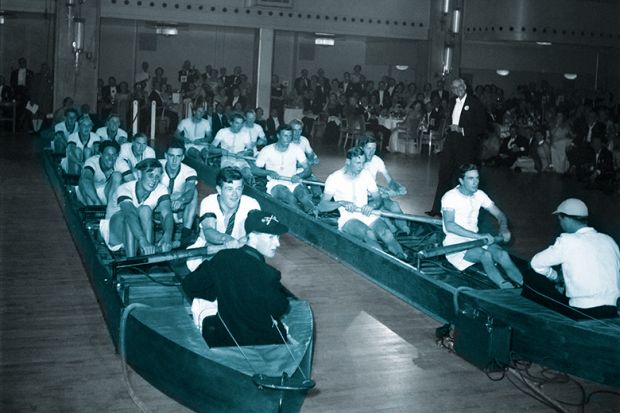‘We are academics, for goodness’ sake’
Many UK academics have grown to despise Advance HE's Fellowship scheme. “It was the only time in my life I didn’t understand English,” one associate professor in a top business school told me. “I put in a lot of effort and my teaching has not improved,” proclaimed a senior teaching fellow in an economics department.
“Avoid it for as long as possible” was most people’s advice. So I did. Until I could avoid it no more.
Last year, I went up for full professor. It was made clear that I could not progress until I completed one of the teaching qualifications accredited by Advance HE. Most academics I know undertake the simple fellowship, even if they are professors who have been teaching for years, with a view to “getting it out of the way via the simplest route”. But given my tangible examples of leadership around teaching and my establishment of an executive master’s in medical leadership for doctors, my mentor (and co-author) suggested I should complete the senior fellowship. My teaching scores were consistently strong, and I’d introduced innovative teaching techniques on the executive master’s. These were supported by robust performance outcomes that included evidence of participant progression, obtained through interviews with students and their direct line managers.
So I took a deep breath, wrenched my mind open, and, inspired by my amazing mentor and referees, began my application.
Unfortunately, it soon became clear that obtaining the fellowship was mainly a box-ticking exercise. “For Senior Fellowship through the CPD route you will need to demonstrate achievement of Descriptor 3 of UK Professional Standards Framework (2011)” and complete the “Senior Fellow Review Grid”. Jargon dominated the “descriptors”, which barely seemed to differ from each other. A particularly tedious task was “mapping against requirements for Descriptor 3” in a matrix of 44 boxes. To complete this, I had to scan my 8,000 words over 25 pages, then drop the corresponding page numbers into each of the boxes to indicate where the relevant achievement could be found. Ironically, after I submitted the document, I realised that I had inserted the wrong page numbers, and I was certain that such a big mistake would be picked up by my three assessors. But not one person noticed, despite several review rounds.
I discovered to my joy that I made full professor in November. But it would not be recognised until completion of the teaching fellowship. As we all know, gaining a promotion is also arduous, as it should be. I will be paid by my university as a professor for, I hope, many years. It is a big investment, so we need to meet research, teaching, administration and impact requirements. Our academic CVs are sent around the globe to numerous stellar scholars in institutions often much better than our own. But at least, where possible, the process is transparent. We know who is on the school and the university promotion panels. Referees can be suggested, though they might not be selected.
On the other hand, obtaining the senior teaching fellowship is utterly opaque. I did not know who sat on my panel nor the quality of the university they came from, although at least one person was from my own institution. Like my assessors, I was supposed to be anonymised. My publications were attributed merely to “The Applicant”, but my name could easily be sourced through Google, and the MSc focus of my application had numerous identifying details, including my face on the brochure of the executive master’s that I wrote so much about. Wouldn’t it be fairer to remove the pretence of anonymity?
My fellowship application was rejected twice. My expert referees questioned the panel’s decision and, honestly, I was furious. My scepticism had motivated me to pass my application on to a number of experienced faculty to glance at, and they all came back with positive comments. Worryingly, the anonymous panel could have sent me away for another year – thus denying me my professorship, which I had been working towards for nearly 15 years, but, thankfully, they agreed to give me a third impromptu assessment, and I was able to progress.

Had I been denied the fellowship and my professorship, would I – should I – have challenged the decision in an employment tribunal? Very possibly. The application process has little credibility in my view, and it is a sentiment shared by most of the numerous academics with whom I have ever discussed it, many of whom have clear track records of teaching excellence. I do not mean to discount the opinions of those who support the process and found it helpful, but I’m afraid you are a tiny few. If you don’t believe me, be brave and survey, anonymously, all academics in your institution.
My research over many years shows in all kinds of workplaces that we need core-business experts as leaders and managers to advance organisational performance and raise employee job satisfaction and retention. So do we have an outstanding pedagogical researcher or teacher running Advance HE? No. Indeed, there are no academics in the executive team. However, 88 per cent of the 130 deputy or pro vice-chancellors who responded to a survey last year reported that the fellowship is being forced on faculty who go for promotion.
British higher education is struggling. Job satisfaction among professional and academic staff has been dropping, as bureaucracy and other pressures have been rising. Brexit has undoubtedly harmed our universities. We were once viewed as a destination of choice by overseas faculty, but less so now. The teaching fellowships are definitely not helping us attract talent.
Of course, most of us want to be great teachers. Lectures and seminars are the stages upon which we can educate young minds or, in my case, motivate and train expert leaders. They are where we can translate our own and others’ research into evidence-based teaching and learning. I would have so appreciated being exposed to our star teachers, who could have offered helpful tips. I would have really valued a seminar by a pedagogical expert on the flipped classroom, for instance. But the current process does not inspire, and I doubt that many feel their teaching has been improved.
When I wrote to Advance HE to ask what evidence exists that any of the teaching fellowships actually improve the quality of teaching, I was directed to the body’s annual report of CPD and fellowship recognition, which details ongoing growth in the number of fellowships awarded, reaching 163,000 fellows in 2022, including 14,000 based outside the UK. However, the fact that more universities are burdening their academic staff with this obligation is not evidence that it is doing anything good. If my GP tried to prescribe a drug that hadn’t been through endless randomised controlled trials and then been approved by the regulator, she would be struck off. We are academics, for goodness’ sake. We cannot say anything significant unless it can be evidenced. Yet these teaching fellowships are being tied to our career advancement without any data supporting their supposed outputs.
Louise Richardson came from Harvard to head the universities of St Andrews and then Oxford. When she left the UK to become president of the Carnegie Corporation of New York, there was a sting in her tail. Richardson was extremely critical of the Office for Students, a body also purporting to support learning: “I cannot point to a single area in which they’ve actually improved the quality of what we do,” she said. “They are constantly evaluating us, but nobody’s evaluating the impact of all this regulation. The impact is primarily to waste funds that I’d much rather be spending giving scholarships to students or hiring more teachers.”
Can the same not be said about Advance HE’s teaching fellowships?
Amanda Goodall is professor of leadership at Bayes Business School (formerly Cass), City, University of London. Her book Credible: The Power of Expert Leaders is published by Basic Books on 24 June.
‘It should be a community that is attractive to join’
Good intentions lay behind the creation of the Higher Education Academy Fellowships. Launched in the early 2000s, the awards were part of a move to professionalise teaching in universities, making it possible for staff with teaching and learning responsibilities to gain formal recognition for their work.
Submissions were designed to be reflective, with applicants encouraged to relate their experience across different dimensions of professional practice: teaching, assessment, promoting widening participation, and so on. Four different tiers were created, associate fellow to principal fellow, with each mapping on to different levels of leadership and influence within an institution and beyond. Successful applicants would commit to continuing professional development, and many universities, including ours, provided a route for staff to apply through an accredited scheme that we run internally.
At City, we had managed to build up an active community of learning and teaching scholars: as an education-focused academic, and as a course director and, subsequently, associate dean, I worked with many committed, creative and student-focused educators. Encouraging these people to apply for a fellowship appeared to offer potential to reflect on their contributions. Gaining a fellowship could even, we hoped, incentivise staff to put extra effort into their teaching.
Unfortunately, our practical experience was tempered with challenges. Many academics perceived it as a purely bureaucratic exercise, a set of forms to be completed in the right way, rather than as a genuine opportunity for reflection. When the fellowships were included as a condition for promotion, applicants saw them purely as a barrier to be overcome and not as an opportunity to build on teaching experience and expertise. Witnessing numerous colleagues who had worked tirelessly on their applications and who had great teaching experience continuously being asked to resubmit, often for what looked like petty or unclear reasons, further dented the scheme’s credibility.
Applicants also complained that the Professional Standards Framework fitted uneasily with what they actually taught within a business school. This often motivated a contrived match between their professional experiences and the framework, which rarely enhanced their practice.
Far from adding to any sense of community and collegiality around teaching, the process actually distracted from much of the great educational work that my colleagues were doing, and did very little to encourage them to share and improve on their best practice.
It seems my colleagues’ reservations about fellowships are widely shared. Two years ago, Hendrik van der Sluis’ paper on HEA fellowships used a provocative quote from one academic – “Frankly as far as I can see, it has very little to do with teaching” – for its title. Advance HE’s own evaluation of the scheme, published last year, focuses largely on the creation of a cadre of fellows in different institutions rather than any tangible benefits to learning.
So how can we rebuild confidence in the scheme and align it better with our pedagogic efforts as a whole? I’d like to offer a few pointers but also stress that, right now, we are a long way from achieving them. Even though applications, by their nature, are individual, we should be doing more to foster the sharing of ideas, whether they are coming from the pedagogic literature or examples of excellent teaching practice. A set of applicants should become a “community of practice”, united by a very particular area of common interest and dedicated to building knowledge about that area. It should be a community that is attractive to join, where faculty clearly see the potential benefits for their own practice, not merely promotion. Then, becoming a fellow will appear worthwhile for its own sake.
A more transparent review process is also needed to avoid the corrosive perception that applications are being evaluated by a shadowy group versed in the obscurities of the Professional Standards Framework. In an institution with its own accreditation scheme, this can be particularly uncomfortable given that applicants are often assessed by their university colleagues, albeit typically in a different school or department.
The dimensions of the framework are important, but so are factors, such as pedagogic innovation and research-informed teaching. Aligning with an institution’s vision, and its teaching and learning strategy, could also be considered in applications.
With a few tweaks and the right commitment from both university leaders and Advance HE, we could create a scheme that has the possibility of being both effective and popular.
Martin Rich is associate professor in information management and associate dean for the undergraduate programme at Bayes Business School at City, University of London.
A response from Advance HE
Good teaching and how we support students in their learning are fundamental to students’ experience and success in higher education. So it’s vital that we give this our full “professional” attention.
Participation in Advance HE’s accredited programmes for teaching and supporting learning highlights an institution’s work to enhance teaching strategies. Fellowships are a commitment by individuals to reflect on their teaching and supporting learning and to continuously develop these as appropriate to their responsibilities – be it in the lecture theatre, the library, in technical or administrative support or in leading and influencing teaching and learning. We have a sector-led professional standards framework for teaching and supporting learning, recently updated as PSF 2023, which has been endorsed by the many people from around the world who use it. We should celebrate it and make full and proper use of it to deliver the impact students deserve.
The PSF is “by-the-sector, for-the sector”. The recent 18-month review, by representatives of a diverse range of higher education contexts, reflected the input of a range of cross-sector working groups and consultation exercises to ensure the PSF 2023 is fit for the future. I am reassured by the sector’s feedback that the review has weeded out unnecessary burden, which, from time to time, may have frustrated some participants.
Used as intended and designed, the PSF helps us to challenge, shape and enhance our approaches to teaching and supporting learning from both institutional and individual perspectives. Self-reflection and change can be demanding and time-consuming, though, at the same time, the PSF has to be robust and not short-circuited, and certainly not a “box-ticking” exercise.
We have recently shared some of the evidence of the impact of fellowship. Few examples illustrate better what can be achieved than our project with Walailak University in Thailand. Since 2018, we’ve worked together through their strategic approach to develop a “culture of teaching” aligned to the PSF, “in which staff could work together to share good practice and continuously develop their teaching practice”. The university reports that this has led to a 30 per cent increase in student retention and to 93 per cent of teaching staff being rated four out of five or better by their students. Ninety per cent of Walailak University teaching staff have achieved fellowship.
Alison Johns is chief executive of Advance HE.
Register to continue
Why register?
- Registration is free and only takes a moment
- Once registered, you can read 3 articles a month
- Sign up for our newsletter
Subscribe
Or subscribe for unlimited access to:
- Unlimited access to news, views, insights & reviews
- Digital editions
- Digital access to THE’s university and college rankings analysis
Already registered or a current subscriber? Login







